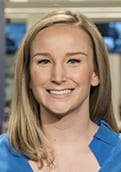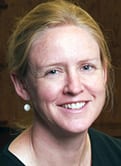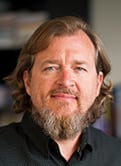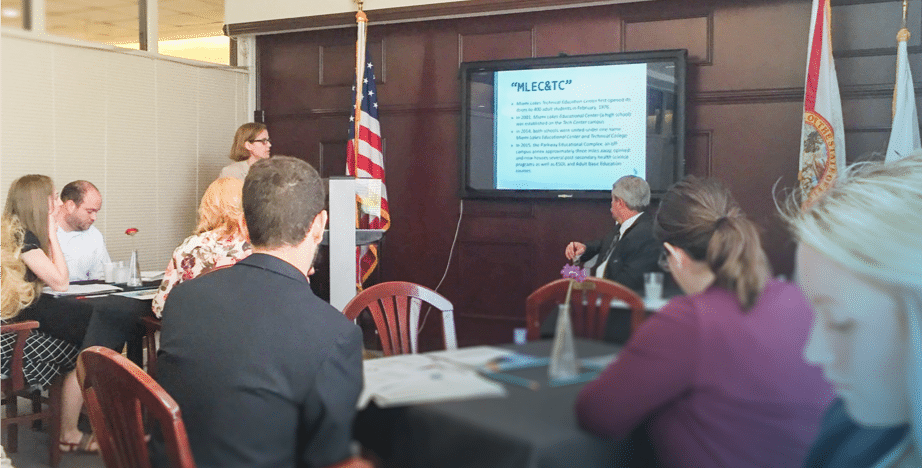Overview
With the passage of the Every Student Succeeds Act (ESSA) and its requirement to include a fifth, non-academic measure in state accountability systems, states have an unprecedented opportunity to consider the various elements that contribute to student success. As we consider potential non-academic indicators, policymakers and thought leaders should draw upon the research around positive youth development which states that positive experiences, relationships, and environments contribute to many desired youth outcomes. This forum explored what we know about developing these experiences both inside and outside of school through social and emotional learning practices, youth engagement, and school climate. Following presentations from leading researchers in these fields, our panel will explore the potential non-academic indicators that might be ready and appropriate for inclusion in state accountability systems.
Presenter Biographies
 Dr. Jean Baldwin Grossman is a Senior Research Fellow at MDRC and is on the faculty of Princeton University’s Woodrow Wilson School. She is an expert on the effect that mentoring programs and out-of-school time programs (afterschool and summer programs) have on children’s and young people’s social-emotional, behavioral, and school outcomes. She has authored (with colleagues) numerous reports and articles on out-of-school time programming, including: She authored two of the mentoring field’s seminal evaluations based on the Big Brothers Big Sisters program: Making a Difference and Making a Difference in School. She also recently finished The Role of Risk: Mentoring Experiences and Outcomes for Youth with Varying Risk Profiles and Youth-Initiated Mentoring: Investigating a New Approach to Working with Vulnerable Adolescents. Along with Jean Rhodes and others, Grossman has also published 13 journal articles on the effects and mechanisms of mentoring, exploring the role of the match length, the quality of the mentoring relationship, and type of mentor. She has a Ph.D. in economics from M.I.T.
Dr. Jean Baldwin Grossman is a Senior Research Fellow at MDRC and is on the faculty of Princeton University’s Woodrow Wilson School. She is an expert on the effect that mentoring programs and out-of-school time programs (afterschool and summer programs) have on children’s and young people’s social-emotional, behavioral, and school outcomes. She has authored (with colleagues) numerous reports and articles on out-of-school time programming, including: She authored two of the mentoring field’s seminal evaluations based on the Big Brothers Big Sisters program: Making a Difference and Making a Difference in School. She also recently finished The Role of Risk: Mentoring Experiences and Outcomes for Youth with Varying Risk Profiles and Youth-Initiated Mentoring: Investigating a New Approach to Working with Vulnerable Adolescents. Along with Jean Rhodes and others, Grossman has also published 13 journal articles on the effects and mechanisms of mentoring, exploring the role of the match length, the quality of the mentoring relationship, and type of mentor. She has a Ph.D. in economics from M.I.T.
 Caitlin Emma is an education reporter for Politico, covering federal K-12 education policymaking and politics, in addition to national trends. Two of her biggest focuses right now include implementation of the Every Student Succeeds Act and the transition to the next presidential administration.
Caitlin Emma is an education reporter for Politico, covering federal K-12 education policymaking and politics, in addition to national trends. Two of her biggest focuses right now include implementation of the Every Student Succeeds Act and the transition to the next presidential administration.
Caitlin graduated from UConn in 2011. As a reporter in Connecticut, she covered everything from state policy and politics, to police, courts, community book clubs and restaurant health inspections.
 Stephanie M. Jones is the Marie and Max Kargman Associate Professor in Human Development and Urban Education at the Harvard Graduate School of Education. Her research reflects a synthesis of (1) developmental science, emphasizing the complex, multi-level, interactive nature of the pathways shaping children’s development; and (2) prevention science, aimed at intervening to change key mechanisms and characteristics of settings which underlie children’s developmental pathways. Jones serves on numerous national advisory boards and expert consultant groups related to social-emotional development and child and family anti-poverty policies (e.g., the National Board of Parents as Teachers and a variety of technical working groups).
Stephanie M. Jones is the Marie and Max Kargman Associate Professor in Human Development and Urban Education at the Harvard Graduate School of Education. Her research reflects a synthesis of (1) developmental science, emphasizing the complex, multi-level, interactive nature of the pathways shaping children’s development; and (2) prevention science, aimed at intervening to change key mechanisms and characteristics of settings which underlie children’s developmental pathways. Jones serves on numerous national advisory boards and expert consultant groups related to social-emotional development and child and family anti-poverty policies (e.g., the National Board of Parents as Teachers and a variety of technical working groups).
 Livia Lam is a member of LPI’s Deeper Learning and Policy teams, with a focus on developing federal legislative and regulatory strategy. She is the lead author of Evidence-Based Interventions: A Guide for States and a co-author of Pathways to New Accountability Through the Every Student Succeeds Act. Prior to joining the Institute, Lam worked as the federal policy advisor for the public affairs firm Strategies 360 in Washington, DC. She began her career working in the United States Congress for Senator Maria Cantwell. Lam later served as a labor policy advisor to Chairman Edward M. Kennedy and Chairman Tom Harkin on the U.S. Senate Committee on Health, Education, Labor and Pensions and as senior labor policy advisor to Chairman George Miller for the U.S. House of Representatives Committee on Education and the Workforce, where she was responsible for workforce education and income security related issues. In addition, Lam served as a political appointee of President Barak Obama as the Deputy Director of Intergovernmental Affairs at the U.S. Department of Labor. Lam received a Ph.D. and an M.Phil. in Public and Urban Policy from the New School in New York. She also earned an M.P.A. from Seattle University and a B.A. in Human Services from Western Washington University.
Livia Lam is a member of LPI’s Deeper Learning and Policy teams, with a focus on developing federal legislative and regulatory strategy. She is the lead author of Evidence-Based Interventions: A Guide for States and a co-author of Pathways to New Accountability Through the Every Student Succeeds Act. Prior to joining the Institute, Lam worked as the federal policy advisor for the public affairs firm Strategies 360 in Washington, DC. She began her career working in the United States Congress for Senator Maria Cantwell. Lam later served as a labor policy advisor to Chairman Edward M. Kennedy and Chairman Tom Harkin on the U.S. Senate Committee on Health, Education, Labor and Pensions and as senior labor policy advisor to Chairman George Miller for the U.S. House of Representatives Committee on Education and the Workforce, where she was responsible for workforce education and income security related issues. In addition, Lam served as a political appointee of President Barak Obama as the Deputy Director of Intergovernmental Affairs at the U.S. Department of Labor. Lam received a Ph.D. and an M.Phil. in Public and Urban Policy from the New School in New York. She also earned an M.P.A. from Seattle University and a B.A. in Human Services from Western Washington University.
 David Osher is Vice President and Institute Fellow at the American Institutes for Research. Osher is an expert on conditions for learning and school climate, social and emotional learning, youth development, violence prevention, school safety, supportive school discipline, cultural competence, family engagement, collaboration, mental health services and implementation science. Osher helped the U.S. Department of Education develop the National Agenda for Improving Results for Children and Youth with Serious Emotional Disturbance, served as senior advisor to the development of the ED School Climate Surveys, chaired the expert panel convened for the Coordinating Council on Juvenile Justice on the relationship between disability and involvement in the juvenile court and correctional systems, and led the What Works Clearing House review of character education. He also serves as Principal Investigator of the contract that supports the work of the Federal Agency Interagency Working Group on Youth Programs. Osher, who consults with ministries, NGOs, educators, districts, schools, and human service agencies across the world, is leading the development of a translational research agenda on school climate and social and emotional learning as well as research agendas in the U.S. and South Africa on schools’ roles in children’s development.
David Osher is Vice President and Institute Fellow at the American Institutes for Research. Osher is an expert on conditions for learning and school climate, social and emotional learning, youth development, violence prevention, school safety, supportive school discipline, cultural competence, family engagement, collaboration, mental health services and implementation science. Osher helped the U.S. Department of Education develop the National Agenda for Improving Results for Children and Youth with Serious Emotional Disturbance, served as senior advisor to the development of the ED School Climate Surveys, chaired the expert panel convened for the Coordinating Council on Juvenile Justice on the relationship between disability and involvement in the juvenile court and correctional systems, and led the What Works Clearing House review of character education. He also serves as Principal Investigator of the contract that supports the work of the Federal Agency Interagency Working Group on Youth Programs. Osher, who consults with ministries, NGOs, educators, districts, schools, and human service agencies across the world, is leading the development of a translational research agenda on school climate and social and emotional learning as well as research agendas in the U.S. and South Africa on schools’ roles in children’s development.
 Charles Smith is the founder and Executive Director of the David P. Weikart Center for Youth Program Quality, a division of the Forum for Youth Investment, and Senior Vice President at the Forum. The Weikart Center currently provides technical supports to a portfolio of over 105 quality improvement systems in 40 states, including several thousand direct service organizations that provide out-of-school time learning opportunities for children and youth. Dr. Smith leads the measures and analytics team at the Weikart Center and guides the Center’s efforts to design and implement lower stakes accountability policies. His current area of focus includes development of standards and performance measures for programs focused on social and emotional learning for adolescents.
Charles Smith is the founder and Executive Director of the David P. Weikart Center for Youth Program Quality, a division of the Forum for Youth Investment, and Senior Vice President at the Forum. The Weikart Center currently provides technical supports to a portfolio of over 105 quality improvement systems in 40 states, including several thousand direct service organizations that provide out-of-school time learning opportunities for children and youth. Dr. Smith leads the measures and analytics team at the Weikart Center and guides the Center’s efforts to design and implement lower stakes accountability policies. His current area of focus includes development of standards and performance measures for programs focused on social and emotional learning for adolescents.
Additional Resources:
Report: Pathways to New Accountability Through the Every Student Succeeds Act
Report: Evidence-Based Interventions: A Guide for States
Blog post: Why the Buzz Around ESSA’s Fifth Indicator Worries Me as a Teacher
Blog post: ESSA’s “Non-Academic” Indicator: What Are We Talking About?
Blog post: Questions We’re Still Asking about Social and Emotional Learning (SEL)


